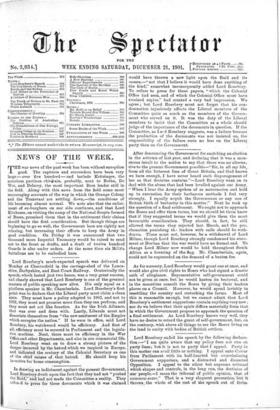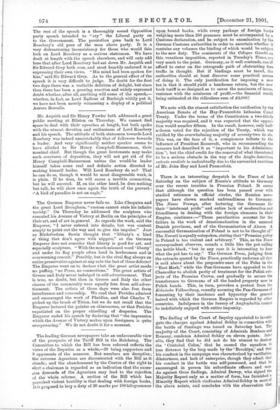" Lord Rosebery ended his speech by the following &clam :
ion :---" I am quite. aware that. my policy does not run on party lines; but it is not to party that I appeal. Party in this matter can avail little or nothing. I appeal. unto Caesar from' Parliament with its half-hearted but overwhelming Government supporters, and a distracted and disunited 'Opposition. I appeal to the silent but supreme tribunal which shapes and controls, in the long run, the destinies of our people —I mean the tribunal of public opinion, that of common-sense." That is a vety eloquent peroration,' but it throws the whole of the rest of the speech out of focits.
The rest of the speech is a thoroughly sound Opposition party speech intended to " cry " the Liberal party on to the Government. The peroration goes back to Lord Rosebery's old pose of the man above party. It is a very disheartening inconsistency for those who would fain look on Lord Rosebery as a serious statesman. We have dealt at length with the speech elsewhere, and will only add here that after Lord Rosebery had sat down Mr. Asquith and Sir Edward Grey both rose, and niost heartily endorsed it as expressing their own views. "His mind had been spoken for him," said Sir Edward Grey. As to the general effect of the speech it is very difficult to judge. No doubt for the first two days there was a veritable delirium of delight, but since then there has been a growing reaction and widely expressed doubt whether, after all, anything will come of the speech,— whether, in fact, as Lord Balfour of Burleigh wittily put it, we have not been merely witnessing a display of a political Aurora Borealis.











































